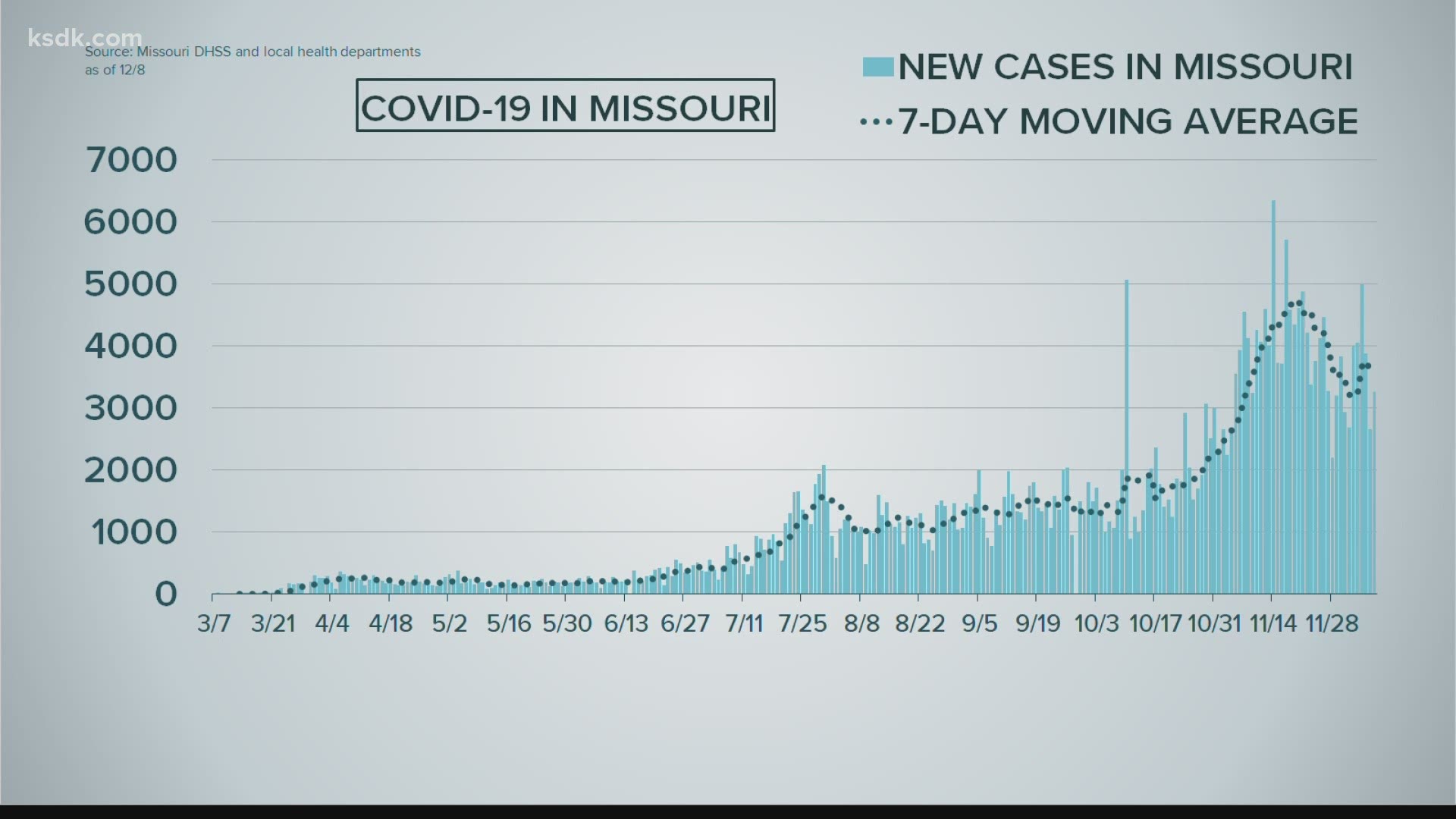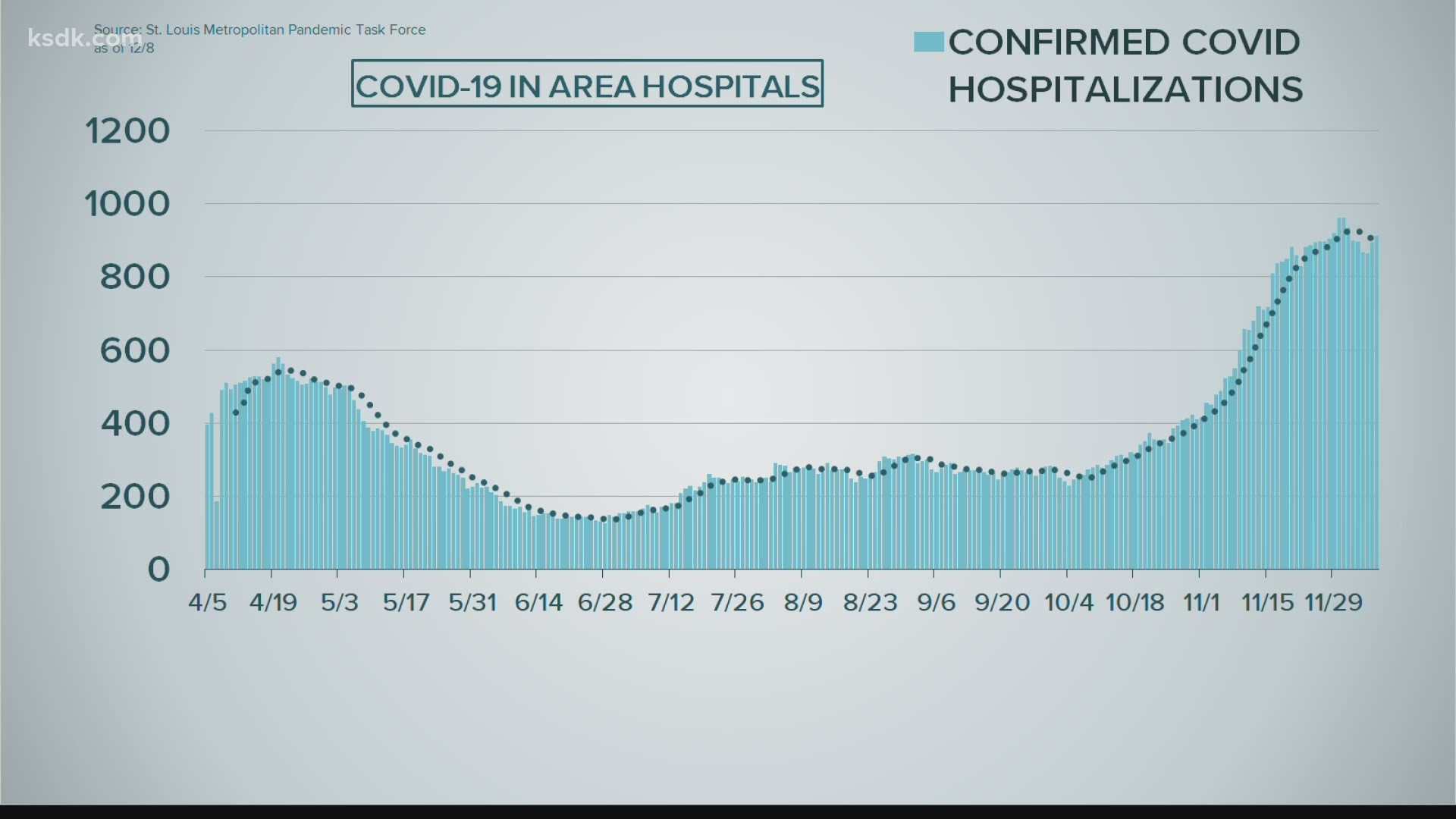ST. LOUIS — "This is the beginning of the end of the pandemic I think," BJC's Chief Clinical Officer and Infectious Disease Specialist, Dr. Clay Dunagan told 5 On Your Side Wednesday. "The light's at the end of the tunnel and we're very excited to be playing a role and seeing that through."
Barnes-Jewish HealthCare will be the first hospital group in St. Louis to receive and administer Pfizer's COVID-19 vaccine.
Dunagan told 5 On Your Side the first shipment should arrive next week.
While he is ready to get the vaccine saying, "As soon as I can get a needle in my arm, I'm ready to receive it," Dr. Dunagan may not be in the first round of vaccinations.
Nearly 10,000 doses will be shipped to BJC, but the healthcare provider has well over 10,000 staff members who need the vaccine.
"The priority at this point is to give that to healthcare workers and by healthcare workers we mean anyone who works in the healthcare setting that has exposure to patients," Dunagan said.
Dunagan said the healthcare workers they want to vaccinate can be anyone from food service to neurosurgery. So the next step for the BJC team is determining which staff members get the first doses.
"We will also put them in age order," Dunagan said "We will divide the group into age brackets and we'll start with the oldest age of healthcare workers first, because they have the highest risk in case they become ill."
Because the vaccine was pushed through under emergency use authorization, BJC will not be requiring workers to get it, but Dr. Dunagan says most will want it.
"I think most people understand, especially in healthcare at least that the vaccine is the ticket to the end of the pandemic," Dunagan said.
Dunagan said the Pfizer vaccine was not tested for children, but it will be. He says the vaccine was tested among a wide range of ages, genders, ethnicities and races.
"We have great confidence that it works the same in pretty much everyone," Dunagan said.
More information is needed before vaccinating minors, especially those who are immune compromised.
"The saving grace about not having that information is that kids tend to tolerate this disease pretty well," Dunagan said.
When asked if the vaccine is safe for adults who are immune compromised, like people with organ transplants or cancer, Dr. Dunagan said the full study has not been yet been released.
"We do know that in the individuals that they tested in these first couple trials, both Moderna and Pfizer, there's been a brisk immune response in people of all types and ages. Some of whom who most certainly had some immuno-compromising conditions, " Dunagan said.
The United Kingdom recently started COVID-19 vaccinations and a few people have had allergic reactions. Dunagan said it's uncertain whether those reactions were a result of the vaccine, but that it's possible. He told 5 On Your Side those people had an EpiPen on hand.
"People have allergies to all kinds of things and we are almost certainly going to have individuals who are allergic to the vaccine," Dunagan said.
Viewers have emailed 5 On Your Side asking about the temperature the vaccine is administered. Dr. Dunagan said the Pfizer vaccine is only stored at 100° below Fahrenheit and that it's "frighteningly cold." He said the vaccine is not liquid at that temperature so it has to be warmed up to room temperature or a bit warmer before it is injected.
mRNA is sensitive to temperature so the vaccine cannot be kept at room temperature for long periods of time.
Dr. Dunagan said people who get the Pfizer vaccine should expect a little muscle soreness at the site of injection. He says some people have experienced flu-like symptoms that are more prominent after the second vaccine.
"That's actually a good sign, it means your body is revved up and ready to fight the virus," Dunagan.
The Pfizer COVID-19 vaccine is administered with two doses, a few weeks apart. Dr. Dunagan said that people who complained of flu-like symptoms after the second dose, said they were "manageable with ibuprofen and rest."
When asked about herd immunity, Dr. Dunagan said we will get there. The question doctors have been asking is can communities reach herd immunity with natural infections? The BJC Infectious Disease Specialist said not without an "astronomical" number of deaths.
"Letting this virus run it's natural course is not a successful strategy," Dunagan said. "So what we are looking for is enough people to be vaccinated and for that vaccine to decrease contagion enough that we will effectively reach that heard immunity point."
Dr. Dunagan said herd immunity is about half the population.
Even though BJC HealthCare workers will be some of the first to be vaccinated, Dunagan does not expect more COVID-19 patients to be sent to their facilities for care. He says all health systems are very capable of taking care of COVID patients. For him, the vaccine is an "extra measure of security," for healthcare workers.
As for concerns over the vaccine, "We've already had almost 100,000 people vaccinated with these two vaccines and there have really been no life threatening consequences and the few allergic reactions have been manageable."



